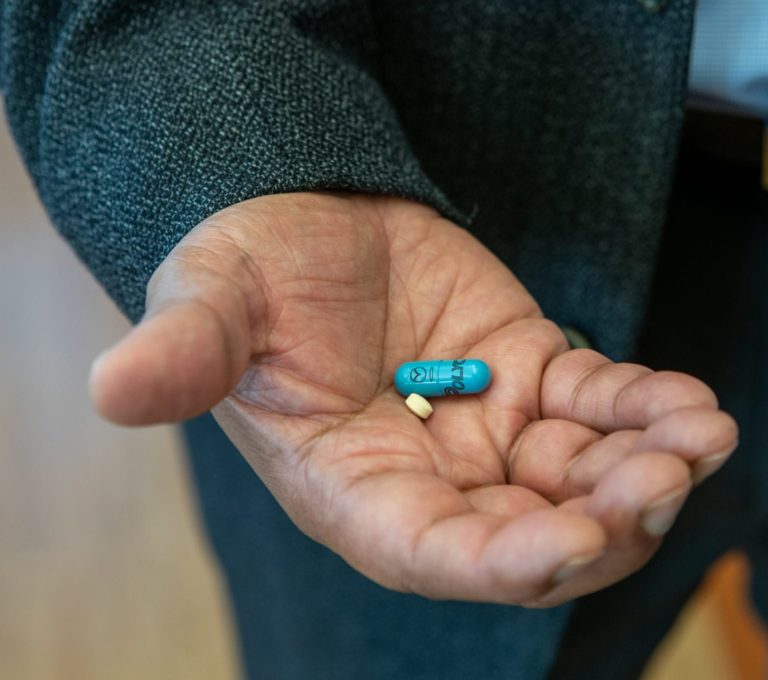
Philip Joseph
No matter your blood pressure or cholesterol levels, or whether or not you’ve had cardiovascular disease or you live with diabetes – taking a fixed-dose combination (FDC) of common medications (known as a ‘polypill’) daily can cut your chance of having a heart attack or a stroke in half. If you’re 65 years or older, that protection is the greatest.
A group of international researchers, led by PHRI’s Salim Yusuf, has found that FDC including aspirin, a statin, and blood pressure medications slashed the risk of heart attacks by 53%, stroke by 51% and deaths from cardiovascular causes by 49%.
These results were published today in The Lancet. Simultaneously, the publication’s first author, PHRI Investigator Philip Joseph, presented the findings at the virtual European Society of Cardiology (ESC) Congress, Late Breaking Science in Prevention session.
He is the Principal Investigator of the meta-analysis of 18,000 people from 26 countries on every inhabited continent, without prior cardiovascular disease (CVD) who participated in three large clinical trials. Their health outcomes were tracked for about five years.
Those trials were: PHRI’s TIPS-3 (NEJM, 2020) and HOPE-3 (NEJM, 2016); and PolyIran (Lancet, 2019).
“This is one of the most important discoveries in three decades when it comes to cardiovascular disease – the number-one killer globally,” says Salim Yusuf, senior author and lead of the 13-nation Polypill Trialists Collaboration that conducted the study.
“Wide use of this simple therapy can prevent between 5 and 10 million individuals experiencing a stroke, heart attack, or dying from these conditions yearly,” says Salim Yusuf, Executive Director of PHRI, a Distinguished Professor of Medicine at McMaster, and Chief Scientist and a cardiologist at Hamilton Health Sciences.
Combining fixed doses has the same positive effect whether taken separately or together in a single dose, known as a ‘polypill’.
Polypill a game-changer

Salim Yusuf
He goes further, predicting “a future with development of a stronger polypill where we could see a lowering of cardiovascular disease by 65 or 70% around the world and leading to even greater benefits.”
The polypill could be a game changer in low-income countries as it would reduce the combined costs of the various meds. “The components of a polypill are generic and low-cost to manufacture, and therefore can be available to people at a modest cost,” Dr. Yusuf notes.
The concept of a combination pill was first proposed 20 years ago as a strategy to substantially reduce cardiovascular disease in the general population as well as in people who had a previous heart attack or stroke.
FDC treatment strategies trialed by the researchers in the past were thought to substantially reduce CVD events – but proof of the benefits have not been available until the last two years, says Salim Yusuf.
Global reaction
The concept of a combination pill was first proposed 20 years ago as a strategy to substantially reduce CVD in the general population as well as in those people who already have had a previous heart attack or stroke.
“The demonstration of a low-cost approach using fixed dose combinations to reduce CVD by about 50 per cent is extraordinary and represents a huge opportunity to tackle the condition globally, with a major potential impact on people’s lives,” said World Heart Federation (WHF) President Fausto Pinto.
“The WHF has supported the use of a polypill for the last decade and these results provide robust evidence to strengthen our global advocacy strategy.”
Wellcome Trust Director Jeremy Farrar said, “The Wellcome Trust supported one of the three major trials studied, support based on recommendations that emanated from a workshop convened with the World Health Organization in London in August 2001… We are pleased that our support has contributed to the development of robust evidence indicating that the polypill or fixed dose combinations involving blood pressure lowering, statins and aspirin can reduce CVD substantially.”
As Jonathan Mant and Richard McManus wrote, also today, in a commentary in The Lancet, “although a polypill strategy might sit uncomfortably with precision medicine, there is now a substantial evidence base that such an approach is effective at reducing cardiovascular disease. Guideline writers and policymakers should consider how to incorporate this evidence base into guidelines and policies.”


